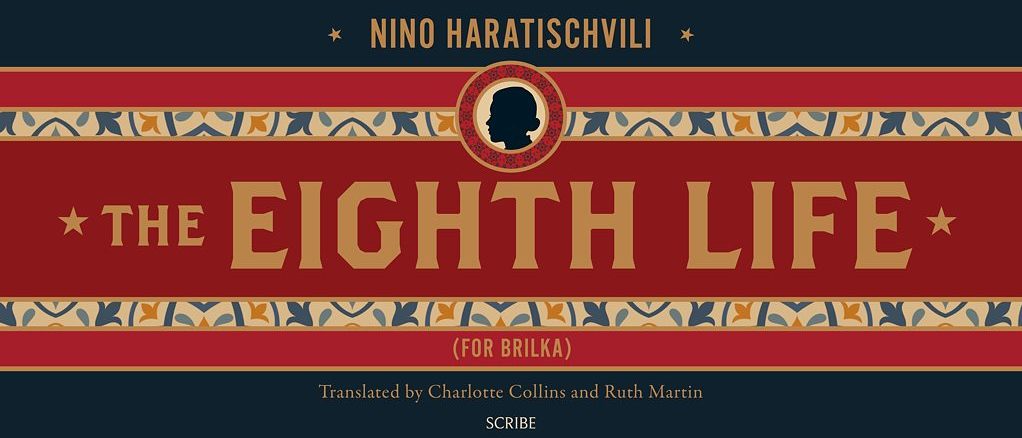
This book was recommended to me by a friend who thought I would enjoy it. And I did! The narrative, told from Niza’s point of view, in nine hundred and thirty-four small, yes, small type pages, spans the lives of eight generations of a Georgian clan on the Black Sea starting at the fin de siècle. Niza’s audience is her niece Brilka, hence the bracketed title.
Set against the historical events that affected the country of Georgia, The Eighth Life is divided into eight chapters. It starts with Stasia, born in 1900 to a confectioner, who made the best chocolate cakes in Tbilisi. He had aspirations to recreate the Vienna coffee culture in his home country. Alas, the turbulence of wars and oppression left this as an unfulfilled ambition. Before Papa died, he passed a secret chocolate recipe, only to be used sparingly, to his daughters; half-sister Christine had been born by a second wife. Stasia’s dream of becoming a ballet star in Paris is crushed by the events surrounding the Russian Revolution. She rarely sees her husband who is stationed in Moscow.
The second chapter delves into the events of Christine’s life. She was an exceptional beauty, which became her tragic detriment. Nonetheless she was the favoured aunt to Stasia’s son Kostya, whose fate we encounter in the third chapter. A very disciplined and ambitious member of the Ruling Party, he experiences an unusual love affair with the older Ida in St Petersburg. This was to leave its mark on him forever.
In the fourth chapter Kostya’s free spirited sister Kitty falls out of favour with the Regime. She only manages to escape to the West, and eventually London, with the help of Kostya’s connections to the upper echelon. This he did because of the pressure that Stasia put onto her son.
The fate of Kostya’s daughter Elene is recounted in the fifth chapter. Equalling her father’s stance of self-determination, she gave birth to two daughters from different partners. The siblings are contrasted by the beauty of Daria and the plain looks of Niza. In due course each daughter’s life is presented in chapters six, entitled Daria, and seven, Niza. The last chapter, consisting of auspiciously empty pages, is dedicated to twelve-year-old Brilka, who is Daria’s daughter.
Niza’s narrative is woven like the pattern of a magic carpet: “Carpets are woven from stories. So we have to preserve and take care of them. Even if this one has spent years packed away somewhere for moth to feast on, it must now come to life again and tell us its stories” (16). I found the storyline enchanting, enlightening and sometimes tragic. Overcoming the hurdles and challenges of oppressive forces each woman finds her place and story on the carpet. The Leitmotiv of the delectable chocolate recipe gives sustenance to the female characters when they are in need of it.
I felt at times that I was reading a tale from the Arabian Nights. I could not put this book down until the end. My knowledge of the history relating to Eastern Europe is widened and I would love to visit the country described on page seven as: “One beautiful, sunny day, God took the globe he had created, divided it up into countries …” but “kept back a sort of holiday residence for himself: the most beautiful place on earth, rich in rivers, waterfalls, succulent fruits, and… the best wine in the world” (7). How can you beat that?
Reader, writer and snippeter.
Loves listening to classical music and jazz, visiting art galleries with expressionistic paintings, going the live theatre, seeing movies and absolutely adores, apart from her two gorgeous granddaughters, travelling to Europe.
Readily surrenders domestic chores to meet with friends for any of the three c’s – chat, coffee and champers.

Leave a Reply